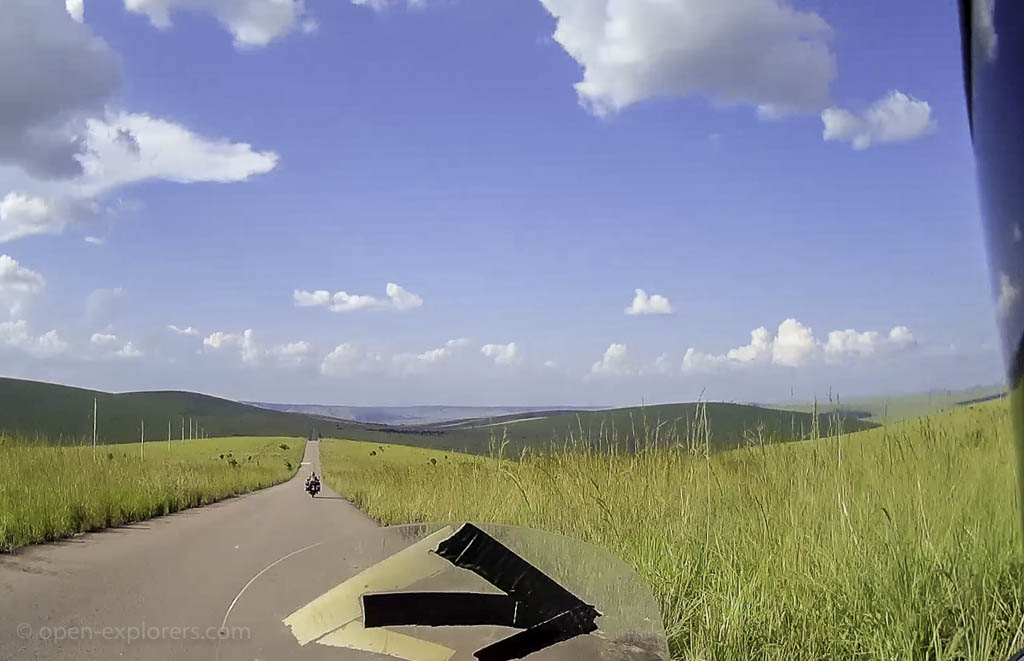Day 957-959 - No gorillas
In the past 5 months in Africa we’ve been very lucky regarding our encounters with the local wildlife. But there ramains one animal way up there on my wish list, the gorilla. About 10 years ago I would have had the chance to see them in Bwindi National Park in Ruanda, but at the time I lacked the necessary funds. In those days they charged US$ 400 for a 1 hour visit with the apes (I hear it’s 500 now). Our financial situation is not much different this time around but I’m hoping that the fees are a bit more moderate in the less visited western part of Central Africa.
The Hippocampe keeps some very informative overlander guestbooks that are full of valuable information. In one of them I read about a sanctuary where orphaned baby gorillas are brought up in their natural habitat. I found a few out-of-date infos on the internet and convinced Daniel to go and check it out.
A tiny and wheathered signpost indicated for us to leave the main road and follow a narrow track, lined with tall gras and dotted with large muddy potholes. On our last day in Brazzaville we had put on our new Heidenau tires, this time the knobbly K70 version, that did really really well in the mud. After a while we reached the border of the sanctuary where a lonely guard was patiently waiting for visitors. Unfortunately he didn’t have good news for us. He explained that indeeed there are baby gorillas being brought up in this part of the protected area, but at the moment they are still too little to receive visitors. Apes easily catch germs and viruses from humans that their bodies are not well prepared to cope with.
After 8-9 years of growing up under protection the gorillas reach maturity and are ready to live on their own. They are returned to the wild in a different section of the park. A group of 15 adult gorillas lives within the park boundaries but momentarily roams some impossible to reach woods. Only one of them stayed behind with his guardians and can be visited. One is better than none and the fee of 50 Euros per person seemed reasonable enough.
The lone ranger showed us some nice vistas over the Lac Bleu before we said our good-byes and headed back to the main road and down a another similar and equally muddy and sandy track towards the camp. The gras and the bushes alongside the track got increasingly thicker, leaned into the clearance and rivaled us for the little space there was. I found it difficult to keep my balance while avoiding branches and finding the best way through a puddle or patch of sand. We inevitably reached the point where it didn’tmake sense to push on any further. The sand was too deep and Yolandas clutch was starting to smell a bit funny. I was afraid it would burn, but I couldn’t pick up enough speed to hold the bike stable and be able to let go of the clutch. But even worse than that was the merciless mid-day heat (40+ C / 104+ F) and the complete absence of any shade where we could have rested. Total exhaustion took over and we weren’t sure whether we could pick up the heavy bikes even one more time. We’re adventurous, but we are also fairly sensible and realized that this was the time to turn back. Even if that meant no gorillas for me. Eventually we made it back to the main road, luckily without dropping the bikes again. We were desperate for a shady spot and the first place we found such, turned out to be the roofed parking area in the front yard of the head of the village. We were kindly offerd two chairs and were allowed to rest for as long as we needed.
Joey
Tag 957-959 - Keine Gorillas
In den letzten 5 Monaten in Afrika hatten wir schon sehr viel Glück mit der lokalen Tierwelt gehabt. Aber ein Tier steht noch ganz oben auf meiner Wunschliste und das sind Gorillas. Vor etwa 10 Jahren hatte ich in Ruanda mal die Gelegenheit die Berggorillas im Bwindi Nationalpark zu sehen, damals fehlte aber das passende Kleingeld. 400 $US sollte der einstündige Besuch kosten (heute sind es mittlerweile 500). Unsere finanzielle Situation sieht momentan nicht anders aus, aber ich hoffte hier im weniger besuchten Westen Zentralafrikas sind die Preise noch moderater.
In einem der sehr informativen Overlander-Gästebücher im Hippocampe hatte ich von einem Schutzgebiet nördlich von Brazzaville gelesen, wo verwaiste Babygorillas aufgezogen werden. Ein paar spärliche und veraltete Informationen konnte ich im Internet finden und wir brachen voller Hoffnung auf.
Ein winziges verwittertes Schild leitete uns irgendwann von der Hauptstraße ab auf eine Art Feldweg der zu beiden Seiten mit hohem Gras gesäumt und mit riesigen Schlammlöchern gesprenkelt war. Am letzten Tag in Brazzaville hatten wir unsere neuen Heidenau Reifen aufgezogen, diesmal etwas gröbere (K70) die sich auf solchem Untergrund wirklich sehr gut machten. Nach einiger Zeit erreichten wir die Genze des Schutzgebietes wo ein einsamer Ranger geduldig auf Besucher wartete. Allerdings ohne gute Nachrichten. Er erklärte uns, daß in diesem Teil des Parks die geretteten Babygorillas aufgezogen werden diese aber momentan noch zu klein sind um besucht zu werden. Die Menschenaffen stecken sich sehr leicht mit Viren und Bakterien von Menschen an und ihr Immunsystem kann damit nicht sehr gut umgehen.
Nach 8-9 Jahren in der geschützten Aufzucht sind die Gorillas erwachsen und werden in einem anderen Teil des Schutzgebietes ausgewildert. Eine Gruppe von 15 Tieren lebt in der Region, hält sich aber momentan in einem weit entfernten und unzugänglichen Bereich auf. Nur einer von ihnen ist bei seinen Beschützern geblieben und kann besucht werden. Einer ist besser als keiner und 50 Euro pro Person ein noch vertretbarer Preis.
Nachdem der Ranger uns noch den Lac Bleu gezeigt und den Weg beschrieben hatte machten wir uns auf zum Camp. Wieder zurück zur Hauptstraße und einen anderen noch kleineren Weg rein. Die Büsche am Wegesrand wurden dichter und bedrängten uns so sehr, daß es schwierig wurde im Matsch und Sand das Gleichgewicht zu halten. Ständig mußte ich Kupplung schleifen lassen, die schon langsam anfing zu stinken. Ich hatte Sorge, daß sie kaputt geht, konnte aber einfach nicht genug Geschwindigkeit drauf kriegen um Yolanda stabil zu halten und die Kupplung los zu lassen.
Der Sand wurde tiefer und tiefer, die Erschöpfung größer und wir waren zu schlapp um die schweren Motorräder auch nur noch einmal hochzuhieven. Noch viel schlimmer waren allerdings die unerbittlichen Temperaturen die mittlerweile irgendwo bei um die 40 Grad angekommen waren und daß es weit und breit kein Fleckchen Schatten gab wo wir uns mal hätten ausruhen können. Wir sind zwar abenteuerlustig, aber auch vernünftig genug um zu erkennen wenn es einfach keinen Sinn mehr macht. Und an diesem Punkt waren wir angekommen und beschlossen umzudrehen, auch wenn das bedeutete, daß ich keine Gorillas sehen würde. Auf der verzweifelten Suche nach etwas Schatten war das erste was wir sahen als wir endlich wieder die Straße erreichten eine kleine überdachte Fläche im Vorgarten des Dorfvorstehers (wie sich später herausstellte). Dort bekamen wir zwei Stühle angeboten und durften uns so lange wir wollten ausruhen.
Joey
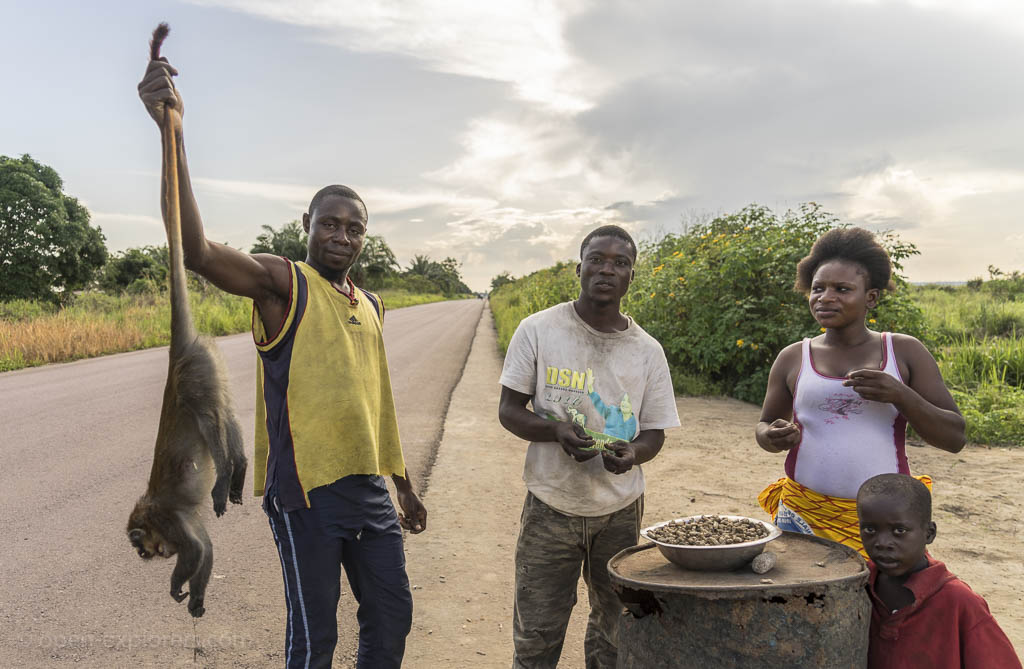
It's common for people to keep a barrel in front of their houses by the side of the road. We've seen it a lot in both Congos. They leave whatever they harvest or hunt on it so passing cars will see it and stop to buy. Usually there's not a lot of produce available, some maniok or bananas, a couple of pineaples or as in this case a bowl of peanuts and some "bushmeat".
Es ist ziemlich üblich, daß die Leute ein altes Fass vor ihrem Haus an der Straße stehen haben. Das haben wir in beiden Kongos überall gesehen. Dort wird Geerntetes oder Gefangenes zur Schau gestellt, damit vorbeifahrende Autos anhalten und es kaufen. Normalerweise liegt aber nicht allzuviel auf den Tonnen, Ein bisschen Maniok oder Kochbananen, ein paar Ananas oder wie in diesem Fall eine Schüssel Erdnüsse und "Buschfleisch".
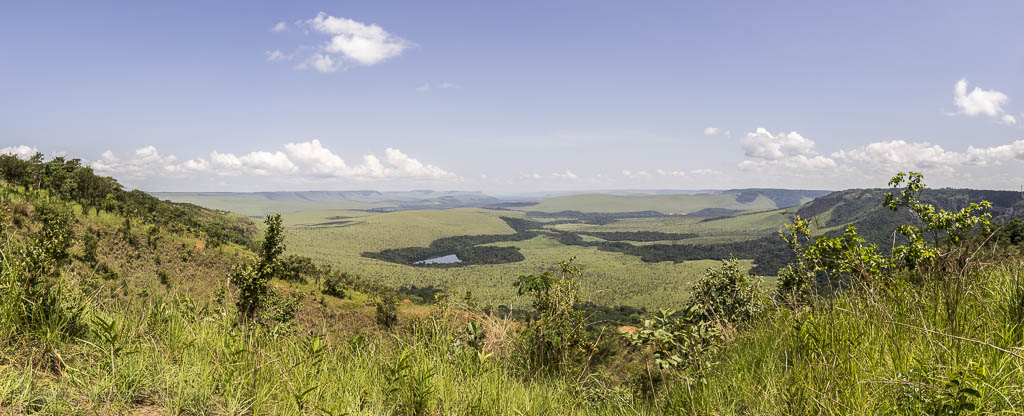
Lac Bleu
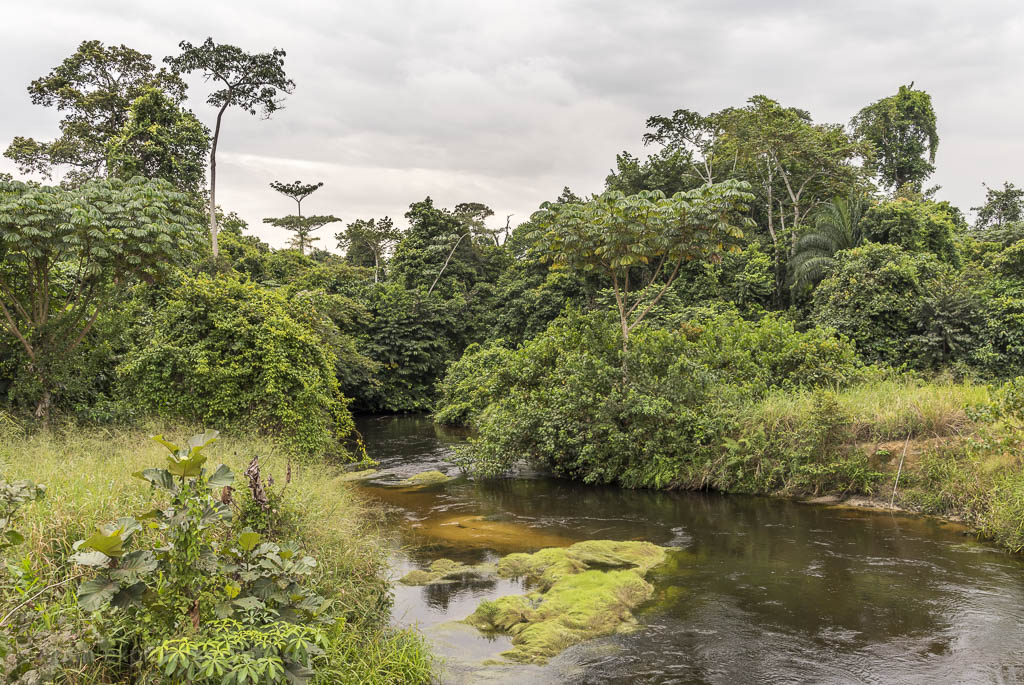
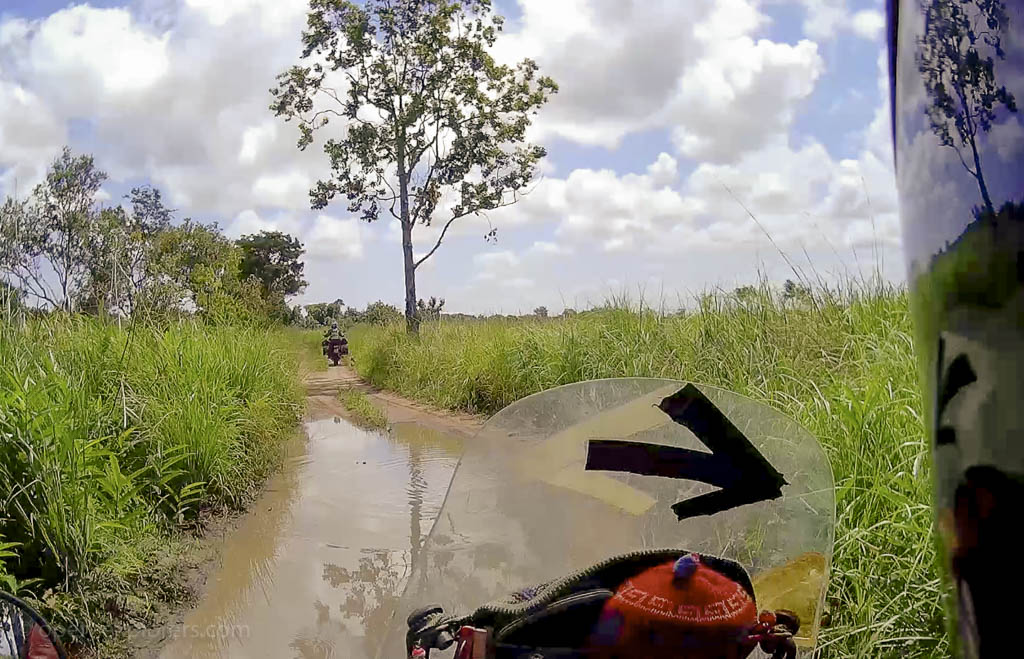
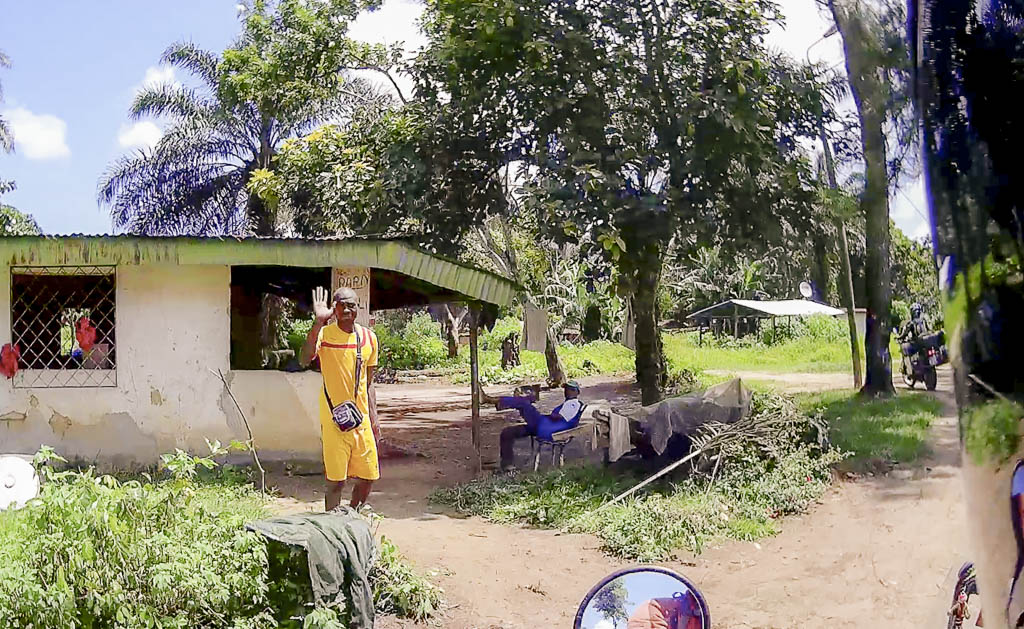
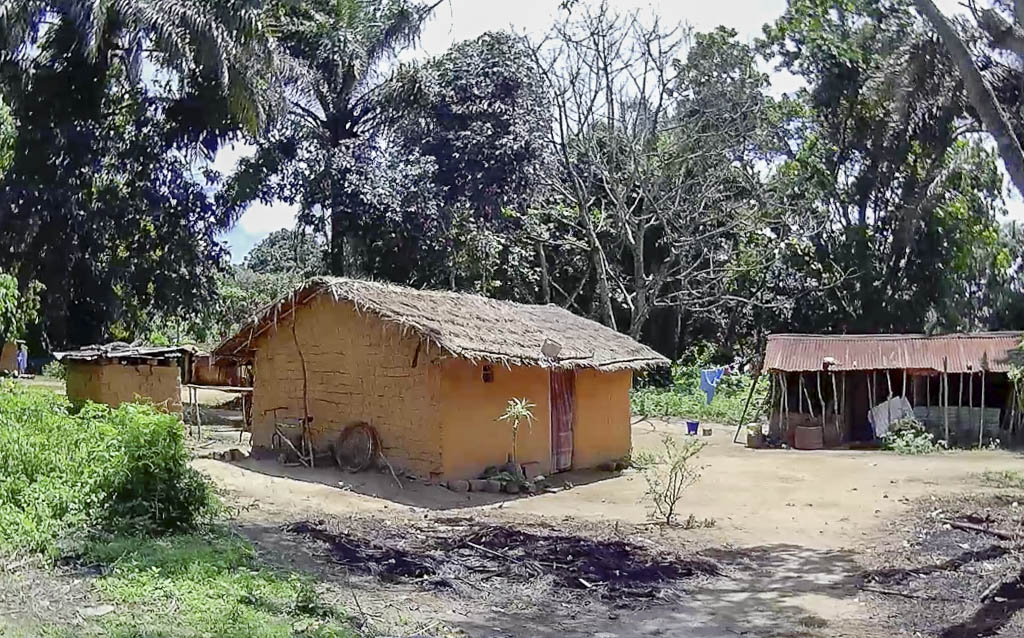
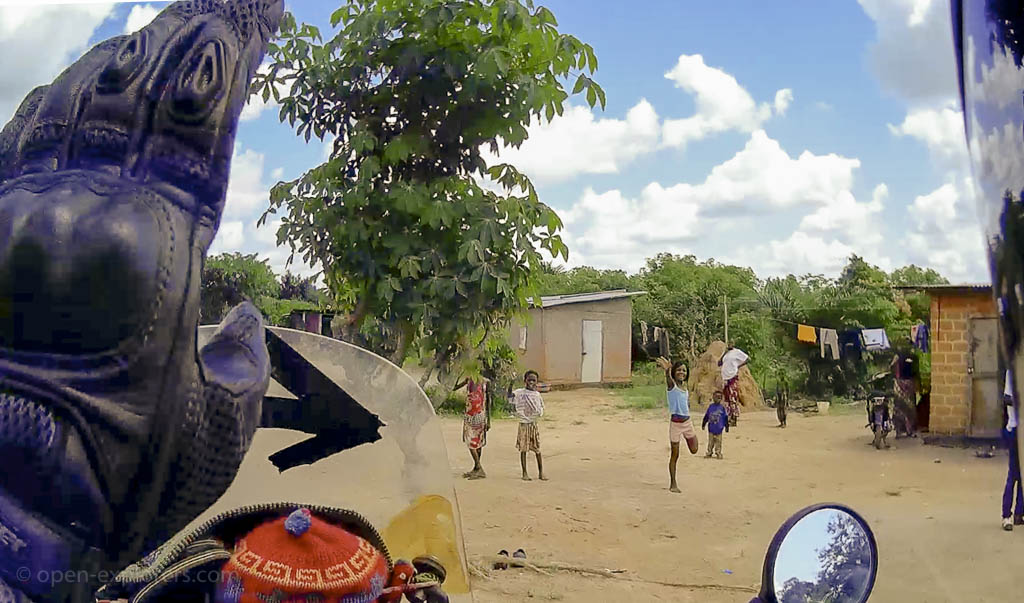
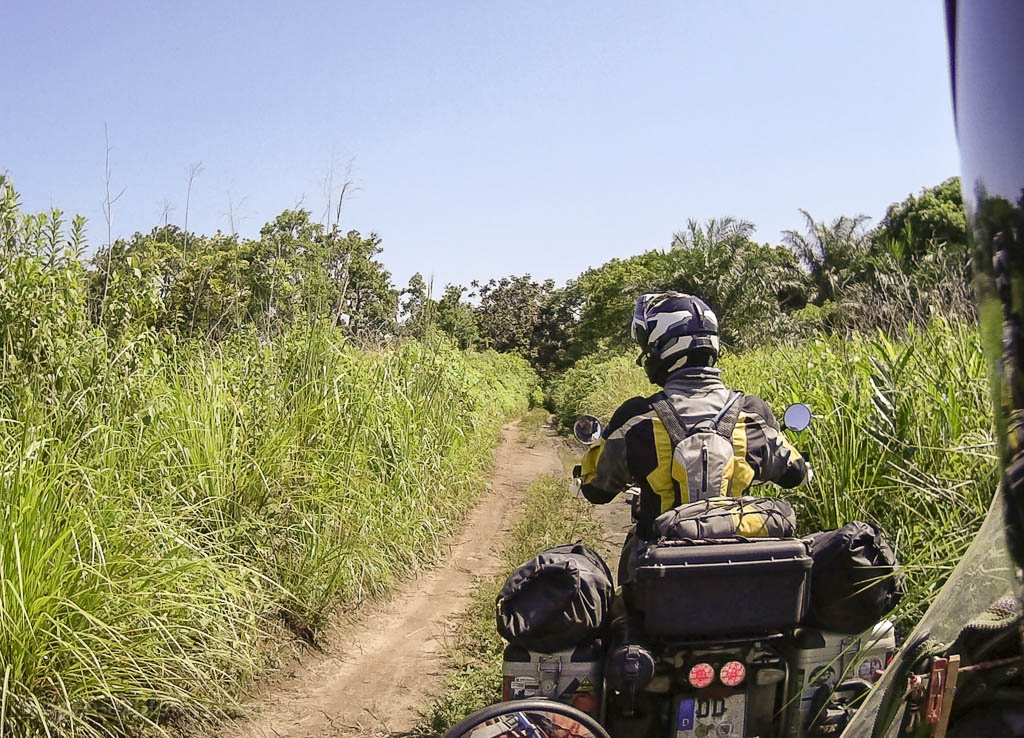
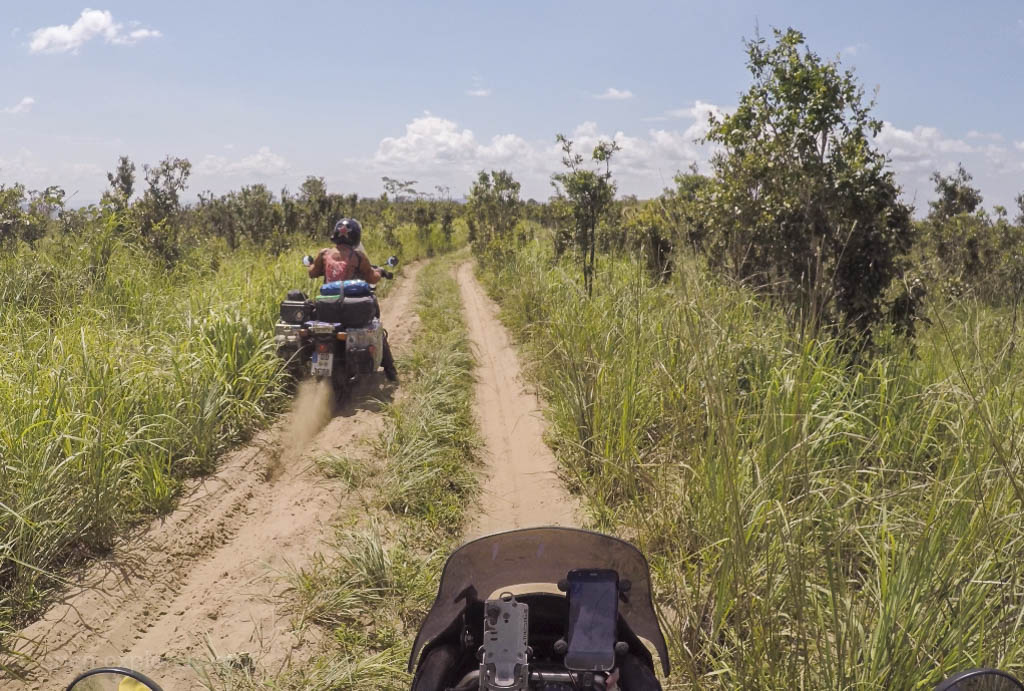
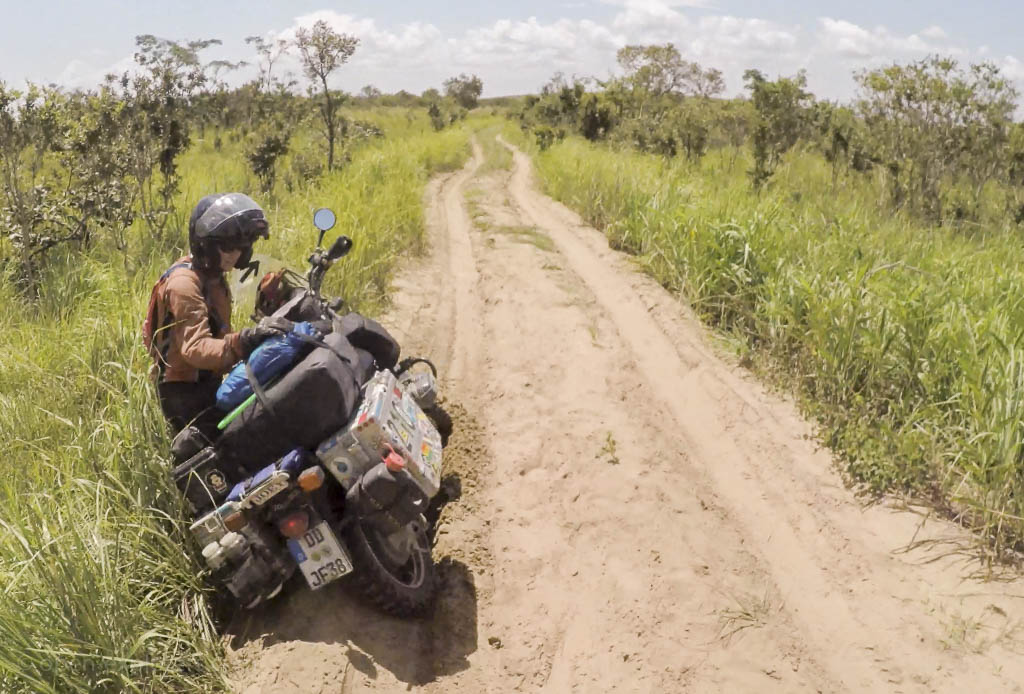
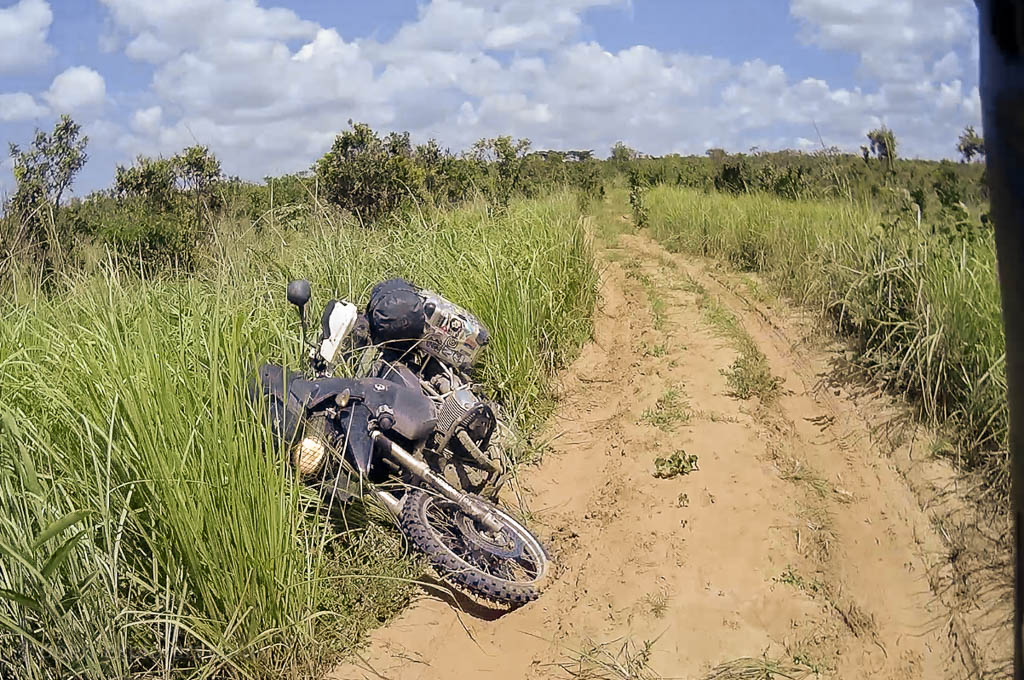
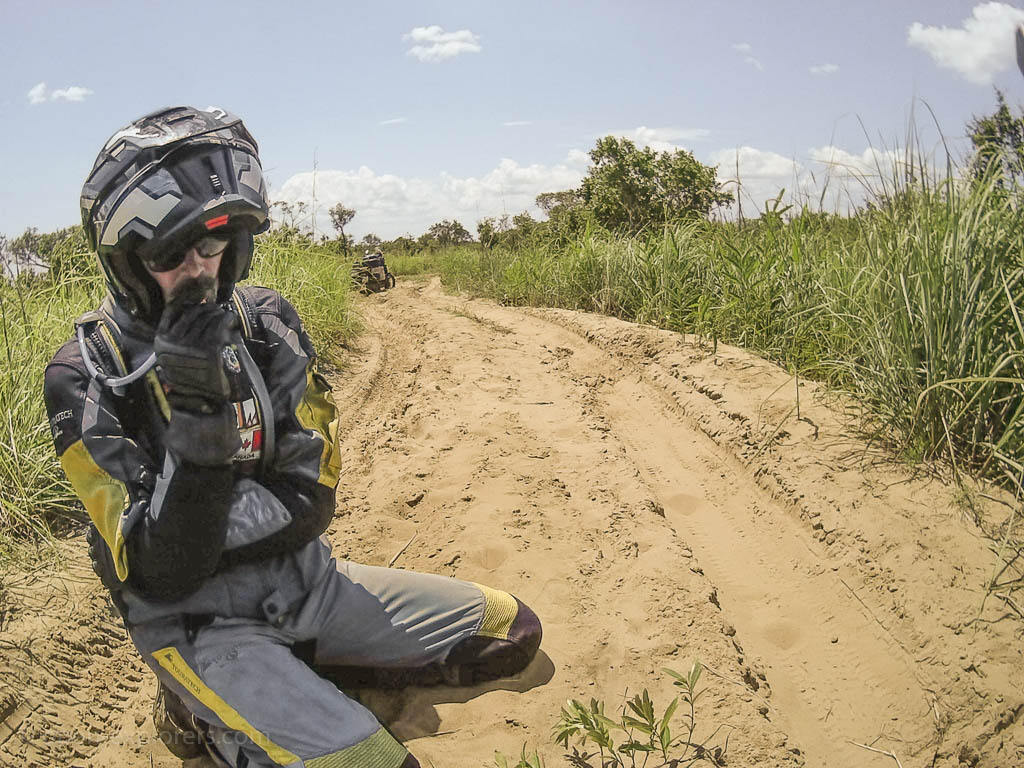
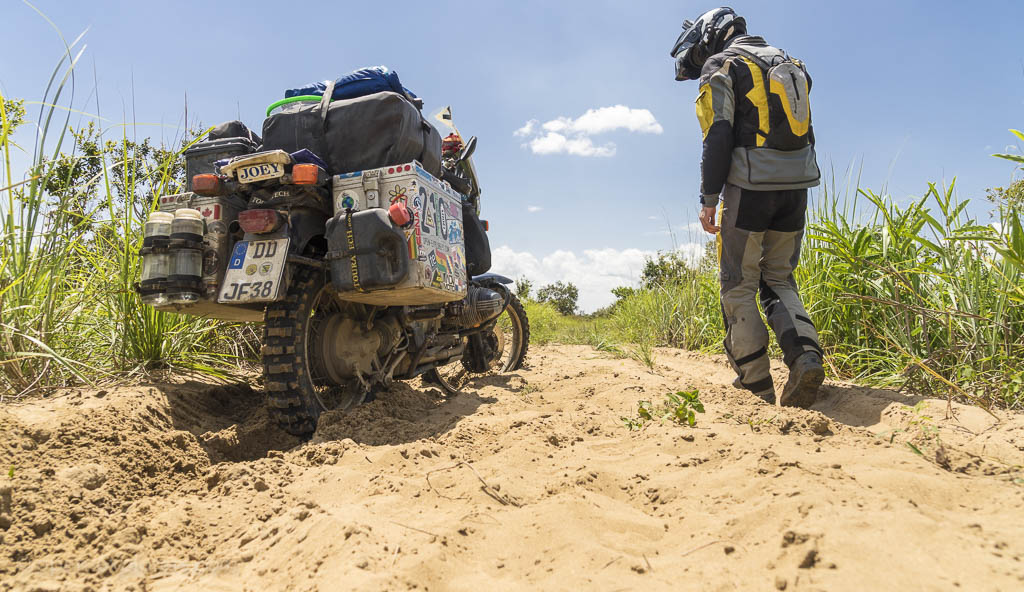
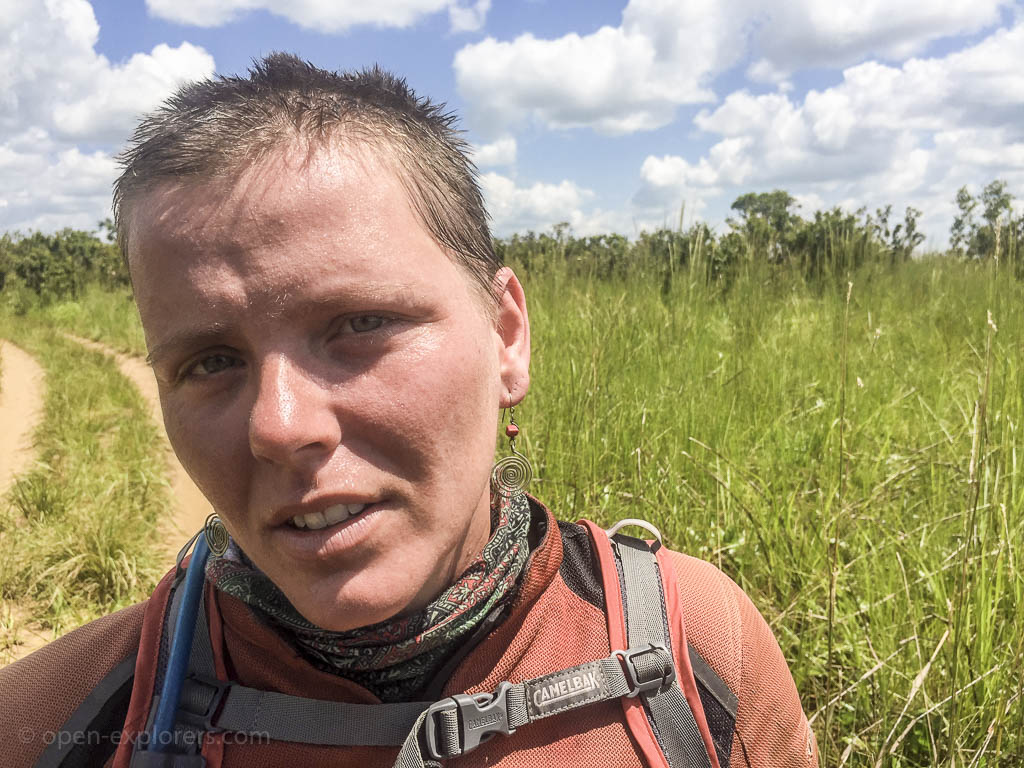
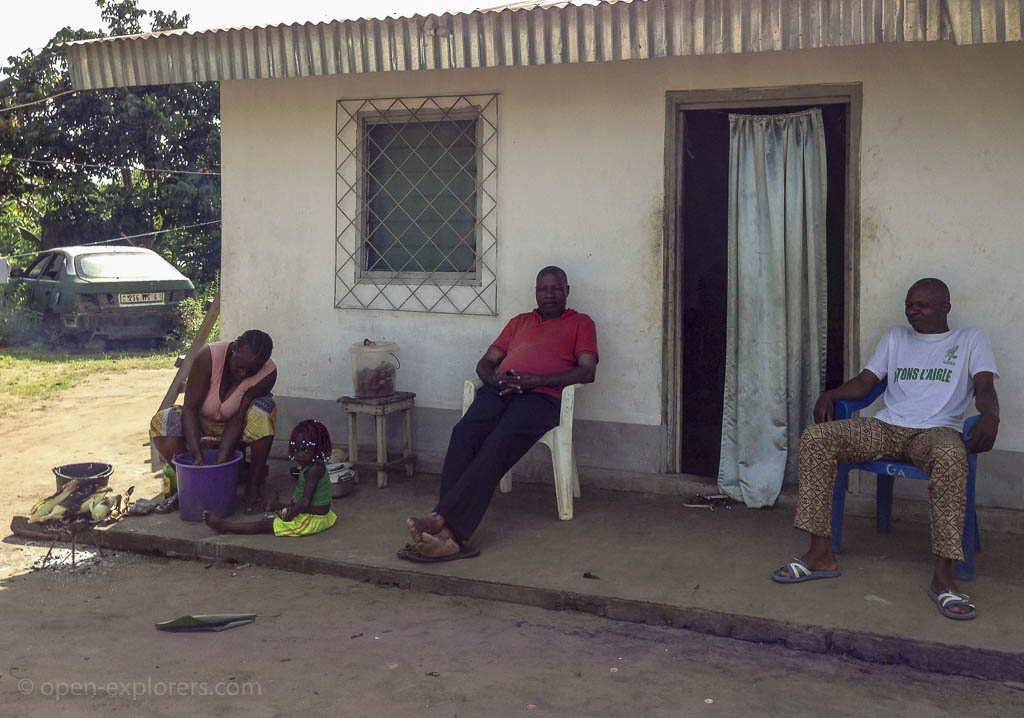
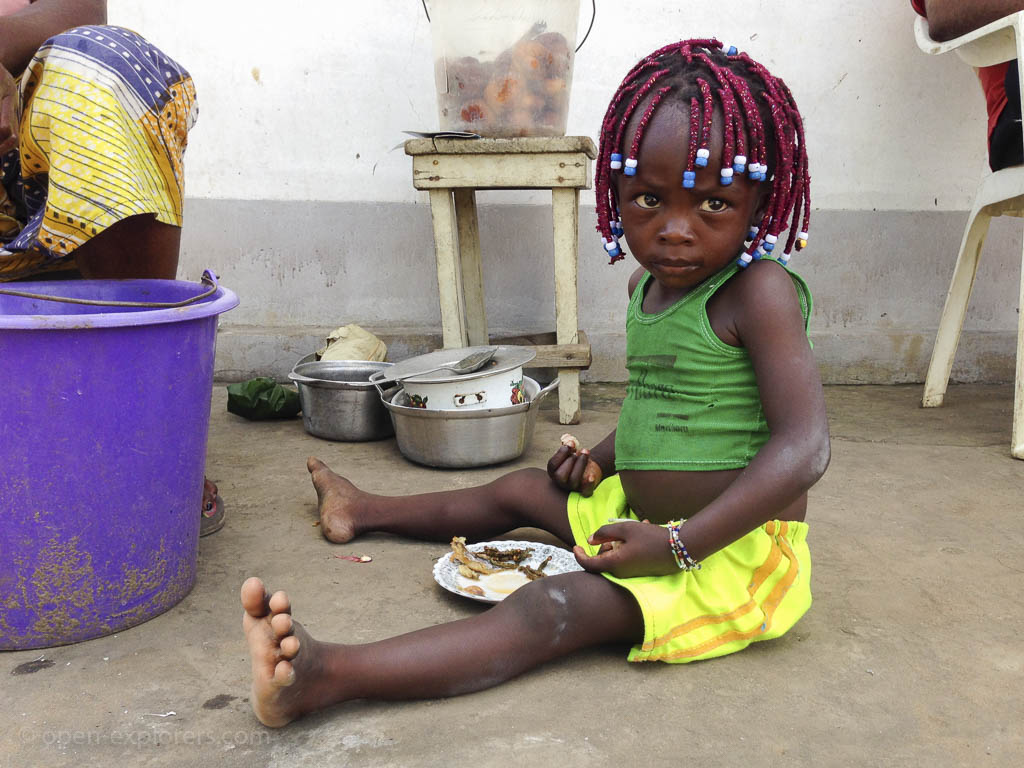
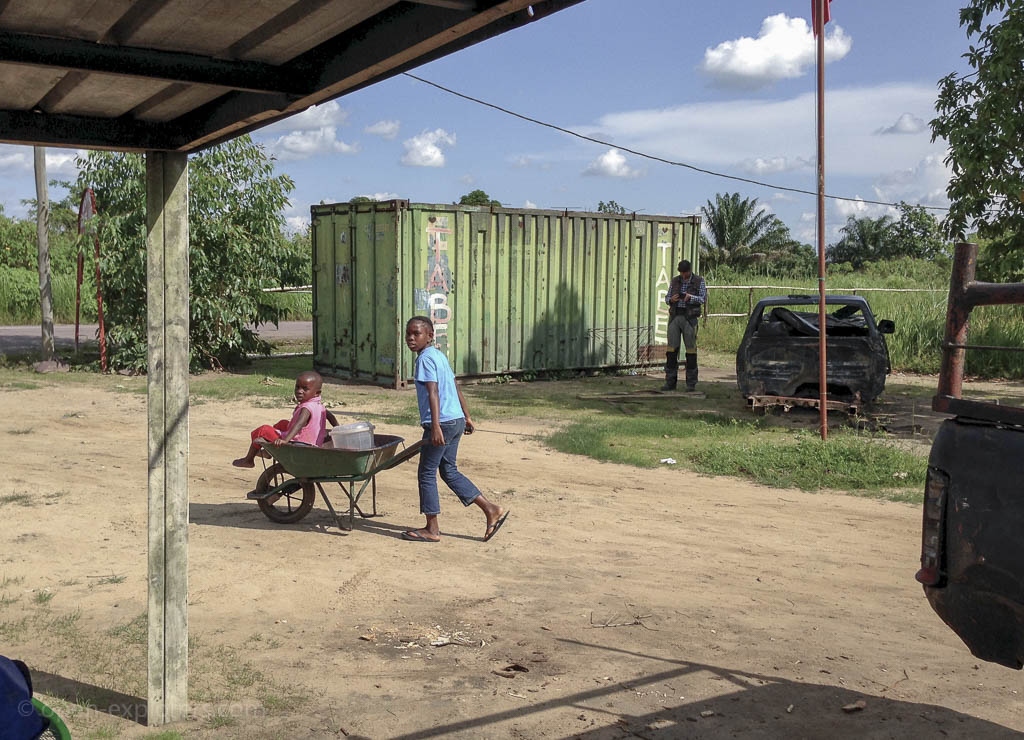
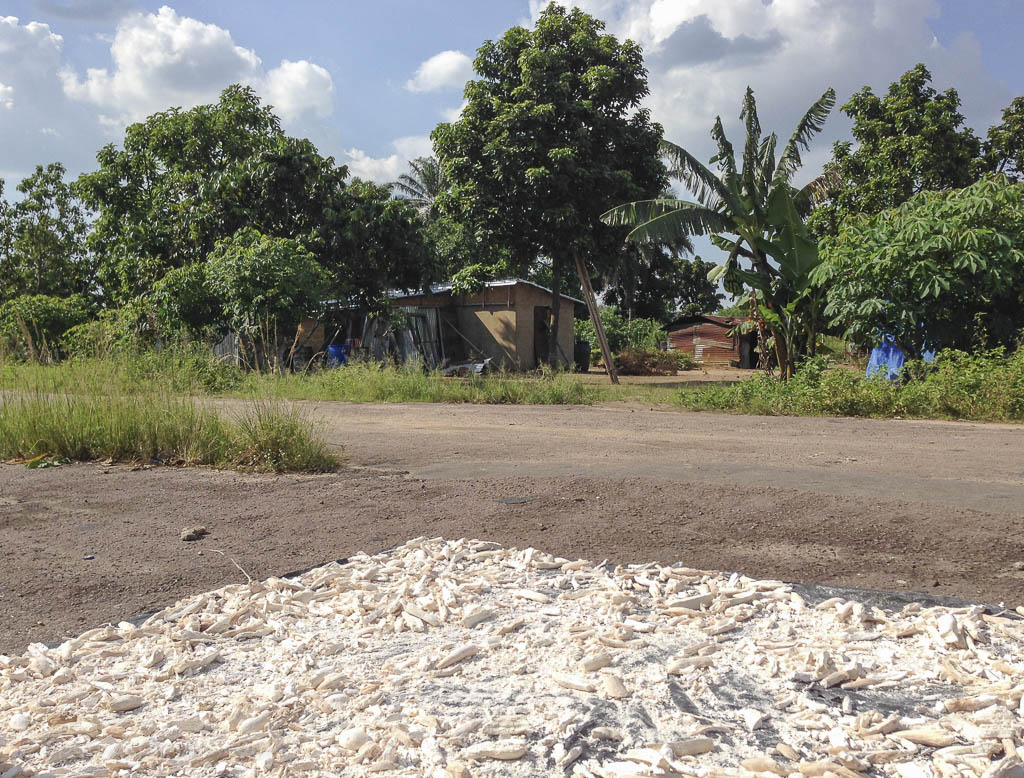
Peeled and cut maniok drying in the sun. Later on it will be ground into flour to make dumplings, so-called foufou. It's the main staple in many african countries.
Geschälter und gestückelter Maniok wird in der Sonne getrocknet und später gemahlen. Aus dem Mehl wird so eine Art Kloß gemacht. Das ganze nennt sich FouFou und ist in vielen afrikanischen Ländern Grundnahrungsmittel.
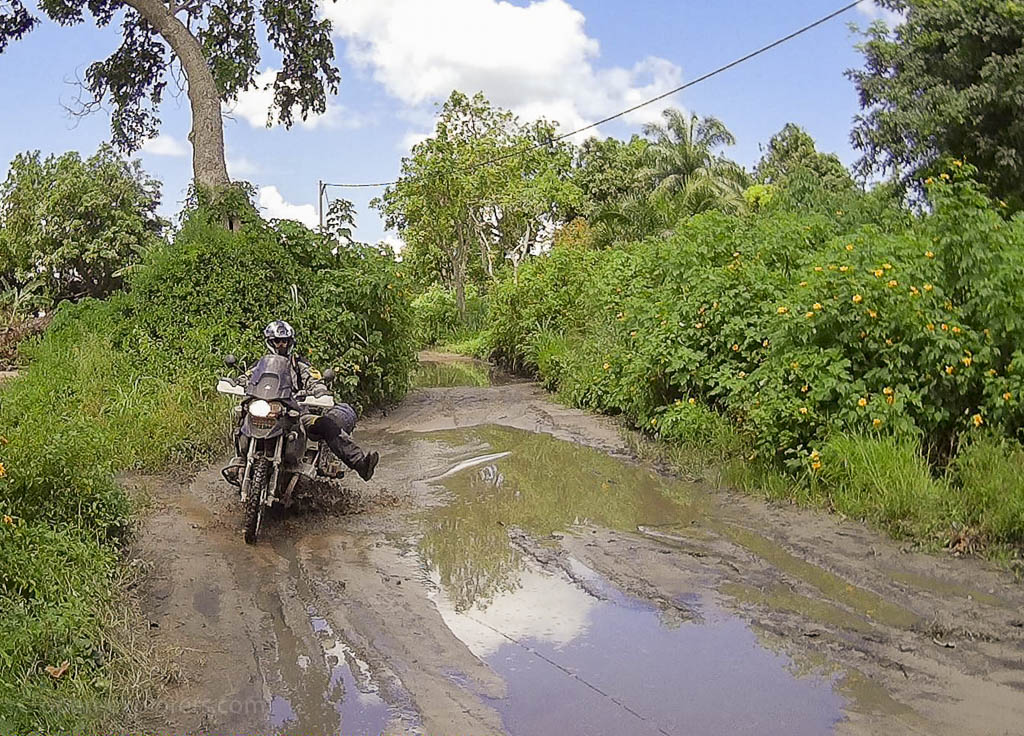
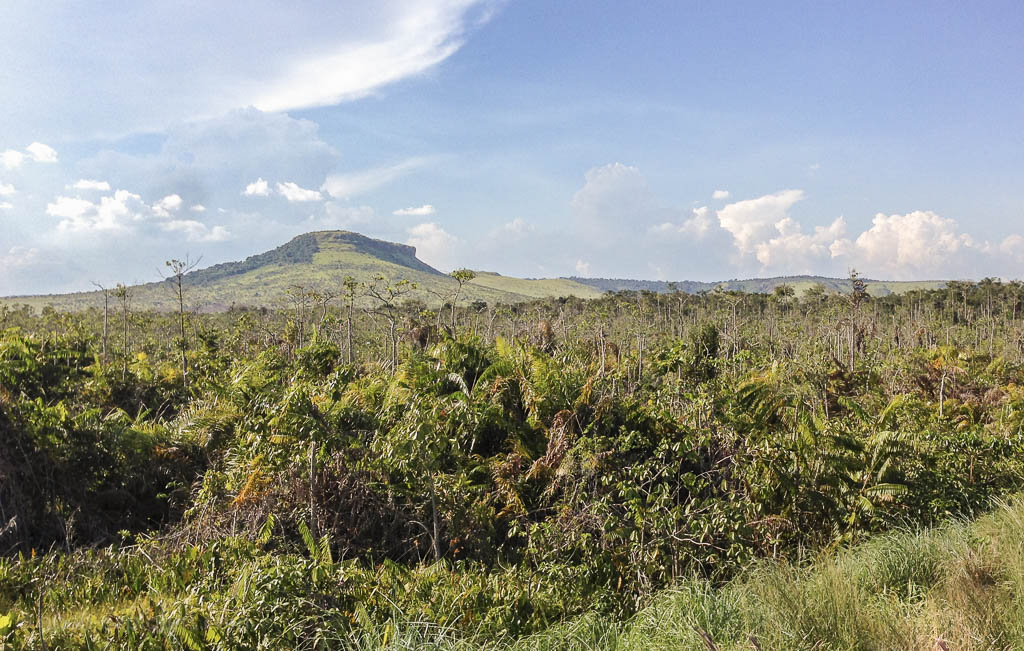
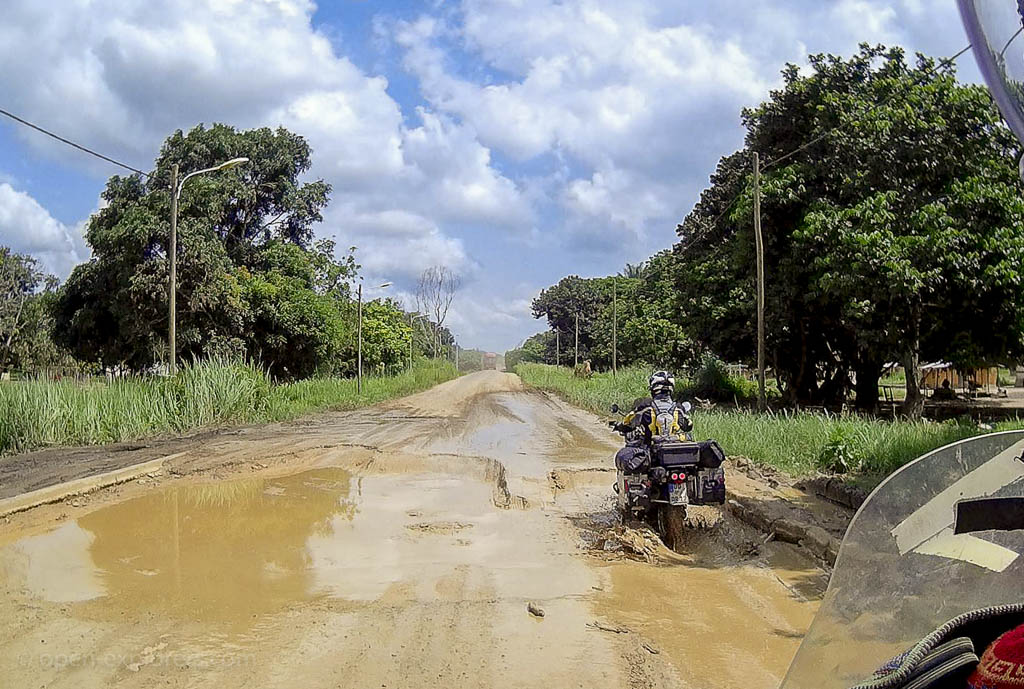
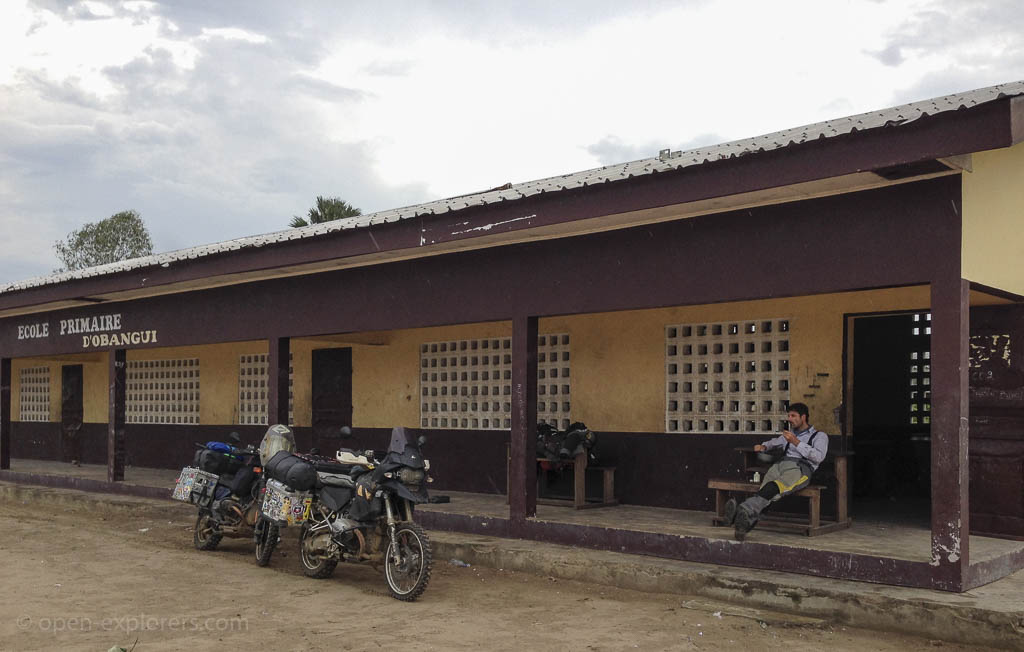
Last lunch break before heading to the border and something very strange happened. We sat down in front of this elementary school and over the course of our 1,5 hour break nobody (not even the kids) aproached us. I think this has never happened before. Maybe they thought it was strange to visit a school on a public holiday...
Auf unserer letzten Mittagspause vor der Grenze passierte etwas komisches. Während der gesamten anderthalb stündigen Pause hat uns niemand (nicht mal die Kinder) angesprochen. Sowas ist noch nie passiert. Vielleicht fanden sie es komisch, dass wir an einem gesetzlichen Feiertag bei der Schule anhielten...
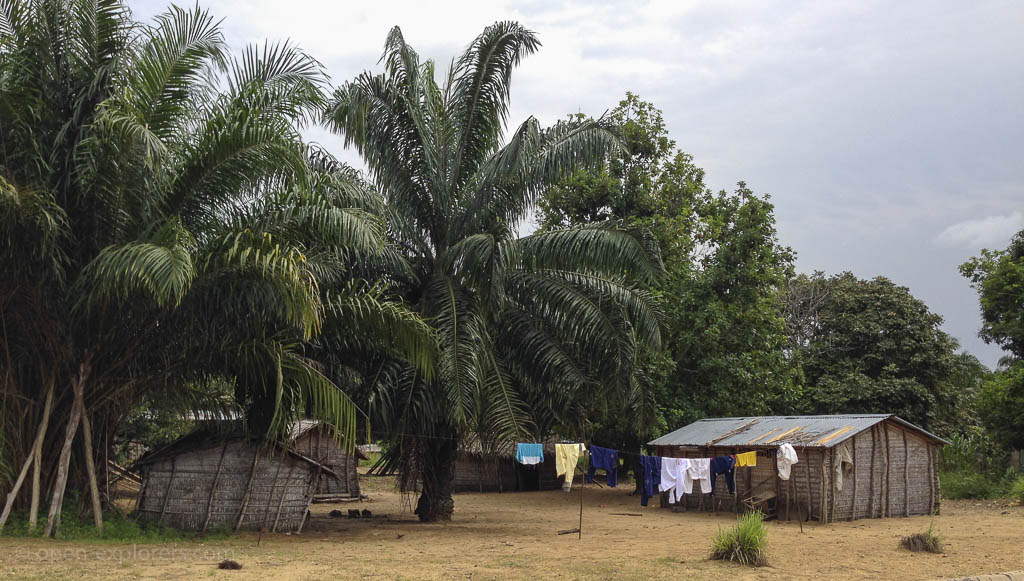
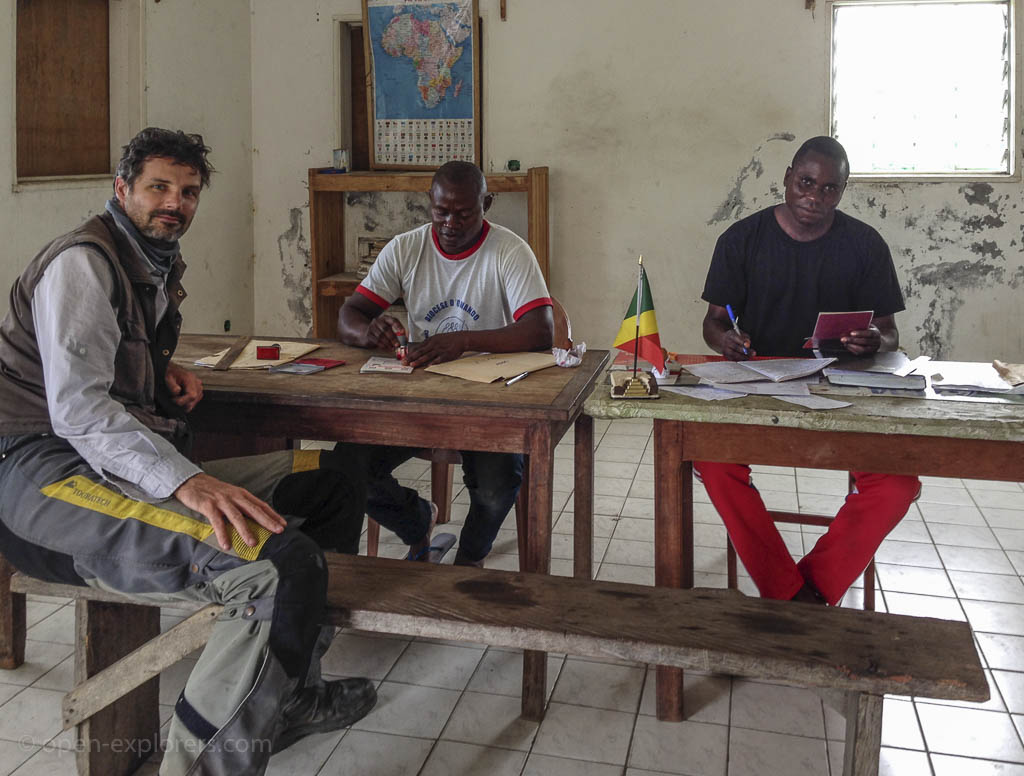
The very relaxed and hospitable Congo - Gabon border crossing
Der sehr entspannte und freundliche Grenzübergang zwischen Congo und Gabun
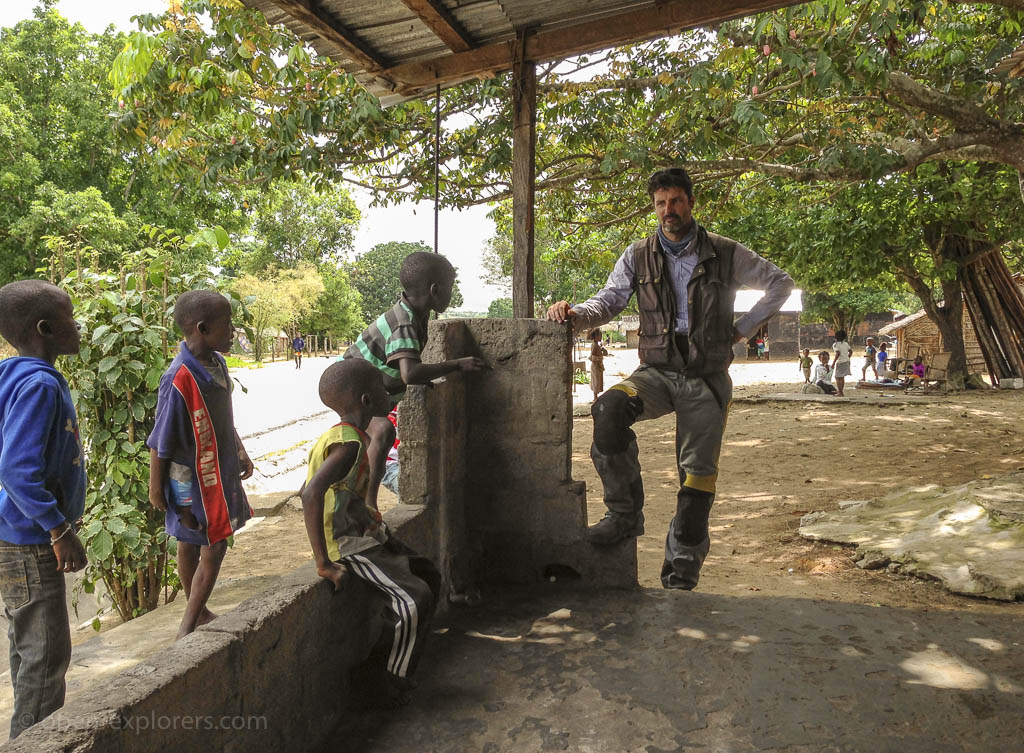
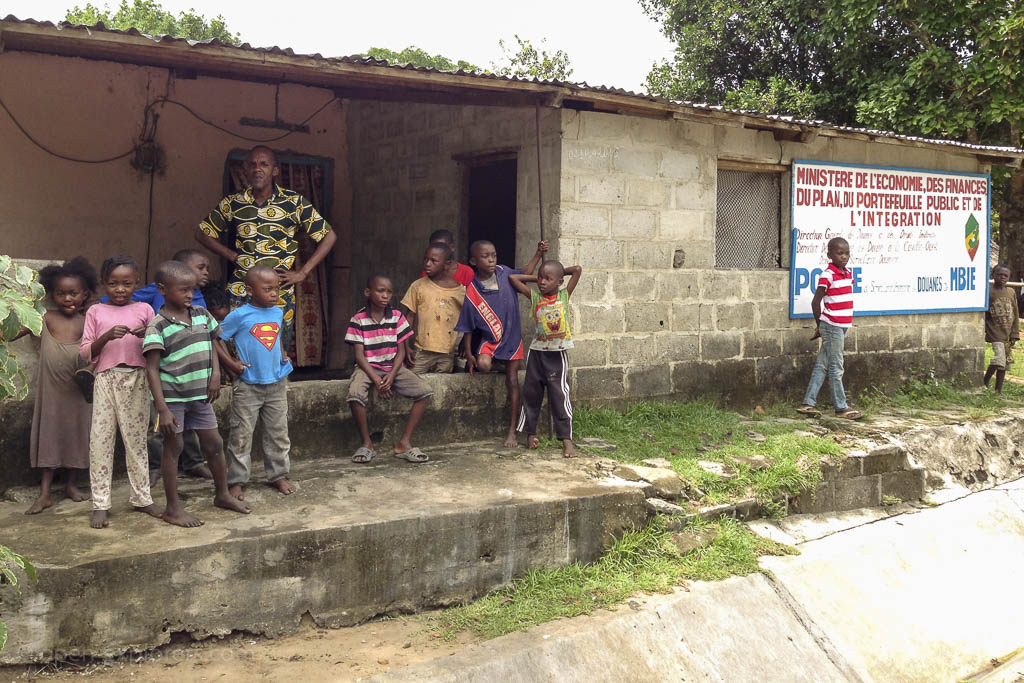
The congolese customs officer in front of his office. To our surprise he knew exactly how to fill out and stamp our "carnets de passage". Most officials don't but of course would never admit it.
Der kongolesische Zollbeamte vor seinem Büro. Zu unserer Überraschung wußte er ganz genau wie unsere "Carnets de Passage" auszufüllen und zu Stempeln sind. Die meisten Beamten wissen es nicht, würden das aber natürlich nie zugeben.
